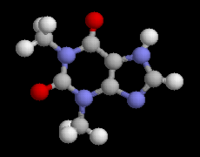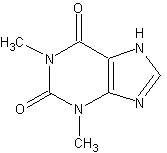Heaven knows what WG Grace would have made of all this. The talk was of the finer points of cricket - and gangstas, crack cocaine, stabbings, and police harassment. But it was the youth of England who were full of tales of drugs, mayhem, and street battles, while 13-year- old Ruben Campos from down town LA twirled his Gray-Nicholls bat and demonstrated the perfect hook.
The extraordinary scenes took place yesterday at the Lisson Green estate in north-west London, the place where some of the gang which murdered headmaster Philip Lawrence allegedly hung out, and the place that sparked dozens of tabloid headlines about the terror of teen mobsters.
The United States contingent, Compton Homies & The Popz, from California, were here to tell their English counterparts "forget muggings, take up cricket instead". Since cricket was introduced to the American youths in an experimental scheme, it has been dramatic effect for the good, according to the police, welfare workers, and teachers in Los Angeles, California. Kids heading for the tribal street gangs had found another focus, as well as more stability. The team of 11- to 25-year-olds are on a tour of England playing local teams, and, they say, trying to spread the message of non-violence. Ruben's father was shot in the head at the age of 18 when he got accidentally caught up in a shooting. His son said yesterday: "It just happened to be my dad, it could have happened to anyone. My mother was very worried that something like that can happen to me, but since I've taken up cricket, I'm just keeping out of trouble . . . Life is crazy out there, although it's getting better for some of us. A lot of English kids meeting here are a lot older than me, so they may not listen. But all I say is forget all the hassle and the fighting." Fabio Carvajal, 18, who lives in Lisson Green, cannot understand what the Americans see in cricket. He much prefers basketball. He said to the LA boys: "It's bad here, we have got a lot of crime, we have got drugs, and we get the police hassling us all the time. Is it really that bad over there? We see these things on TV, but it can't really be that bad." Theo Hayes, from Compton, LA, replied quietly: "It's exactly like that. It's totally mindless. You have got a nice cap on, they'll shoot you just to get that." Theo, 24, one of the oldest players, said: "I used to get jumped on all the time by the 18 street gang, they were Mexicans. But since I started playing cricket I just keep out of their way . . . "It may seem strange but cricket does help to build character. As we say over there in baseball you get three chances before you are out, in cricket you're only out the once in an innings, so you've got to cease that chance." The cricket initiative in Los Angeles was organised by Theo's father, Ted Hayes, 46, an activist for the homeless who once lived on the streets. He was introduced to the game by Katy Haber, an Englishwoman, and a producer on the cult movie Blade Runner. She is one of the organisers of the tour. The team has raised its own funds for travelling, although local charities stepped in to help. Michael Blumberg, editor of Cricket World magazine, watching the encounter yesterday, said: "Isn't it ironic that those of us who know cricket know that it is a civilising influence the world over. But if you said that you'd be seen as some strange fuddy-duddy. But look at the effect this has had on these American kids." Bill Johnson, a 17-year-old black youth who lives in the area, said he knew friends involved in north London gangs. He said: "It's getting worse around here. There's a local gang called the Lisson Green Posse who are Bengali kids, and there are a few other gangs as well. . . . it will just get like LA the way things are going." But perhaps not for a while. Standing in the warm spring sunshine Sergio Pinales, 17, said: "In LA, where I live, you can't go anywhere without hearing police sirens, police helicopters, and often shots being fired. "But listen to that, we're standing in the centre of London and I can hear birds singing. I like that."
Copyright 1997 Newspaper Publishing PLC
Provided by ProQuest Information and Learning Company. All rights Reserved.



